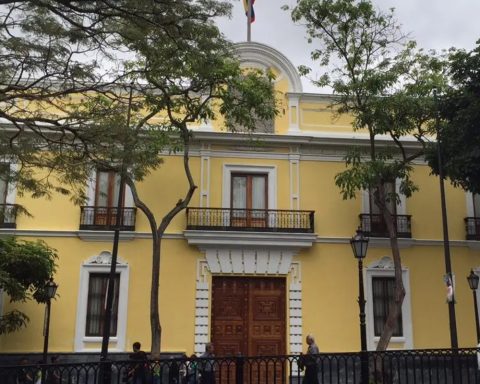
July 7, 2023, 11:40 AM
July 7, 2023, 11:40 AM
The high consumption of electricity in the midst of a heat wave with temperatures equivalent to 40 degrees Celsius caused the power cut to hundreds of thousands of people in Montréal (Canada), warned the Hydro-Quebec company, as the problem was ironed out Thursday night.
The company that provides energy to the province of Quebec It said in a statement that the power outages occurred when a safety mechanism was activated on one of its high-voltage lines.
“At the height of the heat wave, on Thursday afternoon, 200,000 Montreal homes lost power. Flights from the Montreal-Trudeau airport were also disrupted. The large blackout ended overnight,” the report said. local newspaper La Presse.
Despite the gradual resumption of operations at the air terminal at around 4:30 p.m., some systems remained affected, the airport reported late in the afternoon on Twitter, advising travelers to check their flight times.
Three days of extreme heat
Much of Canada has been three days into a extreme heat wave that affects the main cities of the country.
In Montreal, the country’s second city, the combination of temperature and humidity is causing a 40 degree wind chill.
In Torontothe largest city in the country, the Canadian Meteorological Service warned that the thermometer would reach 30 degrees this Thursday but, with humidity, the thermal sensation would be 37 degrees.
Similar conditions are taking place, for the third consecutive day, in large areas of the provinces of Quebec and Ontario, the most populated in the country.
And on the Canadian Pacific coast, the province of British Columbia has temperatures between 30 and 35 degrees Celsius.
sweltering heat even in arctic zones
Even in arctic regions, temperatures are sweltering. In Inuvik, a community in Canada’s Northwest Territories near the Beaufort Sea, the thermometer reached 33 degrees, the highest since temperatures began to be recorded in 1957.
The Weather Service expects temperatures to moderate starting Friday.
The Canadian government has said that the climate change is responsible for the high temperatures, as well as the historic wave of forest fires that the country is experiencing this year.
Canadian authorities said Thursday that so far this year the fire has burned 88,000 square kilometers of forest, a record figure that is 11 times higher than the average of the last decade. Canada had 666 active forest fires in the country, double the number at the beginning of June.
















